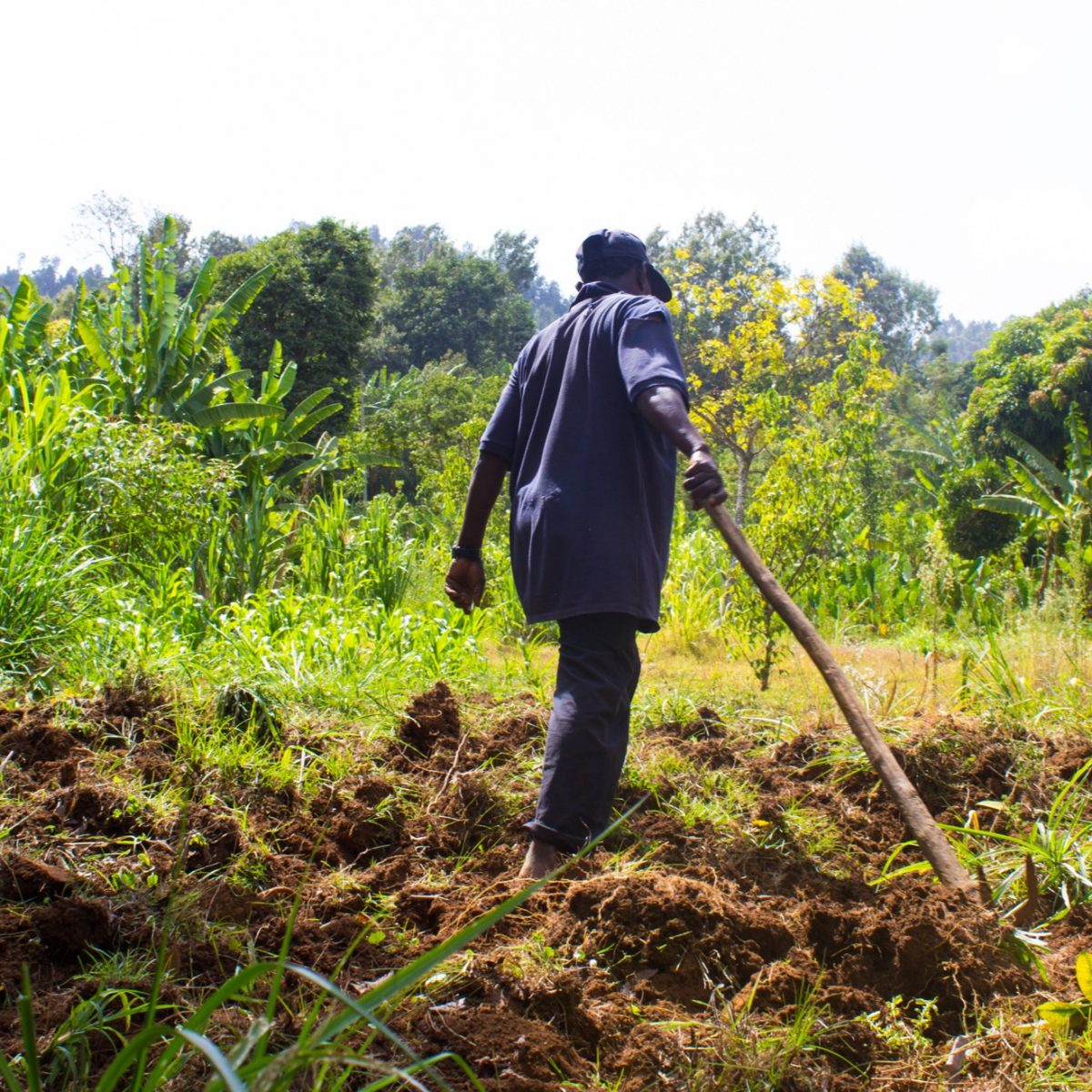
Reflecting on 3 Years of Digital Advisory Support for Agricultural Transformation
Building resilient food systems is essential to ensuring global access to nutritious, sustainable diets. Yet, despite agriculture and food production increasing globally over recent decades, acute food insecurity and malnutrition continue to rise, particularly among the world’s most vulnerable populations.
Addressing this challenge requires systemic change across the entire food ecosystem, from production and monitoring to distribution and quality assurance. It also involves equipping smallholder farmers with timely data and user-friendly digital tools that empower them to make informed decisions, improve productivity, better integrate into existing value chains, and deal with the interconnected challenges they face.
However, merely supplying data and digital agriculture tools is insufficient to enable the systemic change required to strengthen the resilience of food systems. To achieve this form of long-term impact, it is necessary to provide sufficient advisory services on how to best utilize these data and tools, as well as local capacity building and training to ensure that the necessary advisory support services remain available when and where they are needed most.
DAS: Improving the Efficiency of Agriculture Data Use
To support this need, Development Gateway (DG), in partnership with digital development experts, Jengalab, and training experts, TechChange, with support from the International Fund for Agricultural Development (IFAD), implemented the Digital Advisory Support Services for Accelerated Rural Transformation (DAS) program from 2022 to 2025. By providing technical support for ICT4D activities within IFAD-financed programs, DAS aimed to improve the livelihoods of rural smallholder farmers through facilitating digital transformation in agriculture. The program’s target regions were East and Southern Africa, Central and West Africa, and the Near East and North Africa.
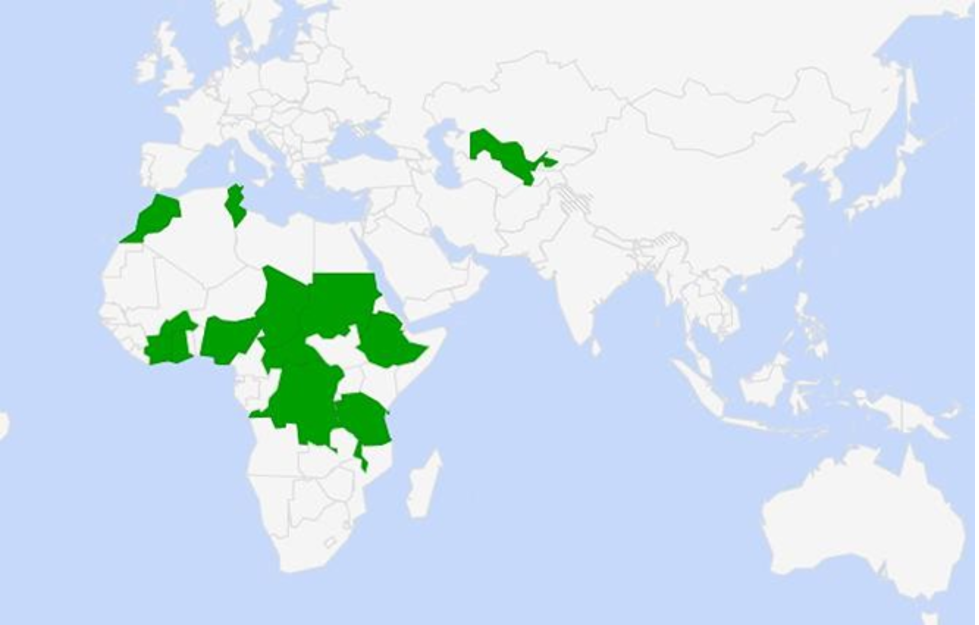
With the DAS program concluding in March 2025, we reflect on its impact in integrating ICT4D solutions to improve rural livelihoods, the effectiveness of its knowledge transfer and capacity building for sustaining gains, and the lessons it offers for future agricultural technology programs.

Integration of ICT4D Solutions
To support IFAD – the only multilateral development institution that focuses exclusively on transforming rural economies and food systems – with its digital strategy, DAS provided on-demand advisory services to support ICT4D activities for IFAD-financed programs. By filling gaps related to technical support, DAS strengthened the ability of these programs to build, maintain, and scale their use of technology in supporting farmers.
While the impact of the DAS support services is ongoing and may only become apparent in the months and years to come, some have already been identified, captured in the examples below.
Nigeria
In Nigeria, the DAS program conducted an assessment of the digital agriculture ecosystem. Serving as foundational research for various project activities – including online training on principles of digital development, interoperability, and in-person monitoring and evaluation (M&E) training – this assessment helped identify key digitalization challenges in the country, such as connectivity and affordability, and generated recommendations for strategic partnerships to address these challenges.
The assessment, which identified data gaps, prioritized interventions, and fostered collaboration with stakeholders, facilitated the development of an ICT4D strategy with the Nigerian government, laying a solid foundation for local ICT-enabled projects and providing a strong case for scaling digital innovations in IFAD-supported programs.
Morocco
In Morocco, DAS provided ICT4D support to the Integrated Rural Development Project of the Mountain Areas in the Oriental Region (PADERMO), contributing to the development of specific actions within the project. These included a pilot initiative to monitor beehives digitally, the establishment of digital agricultural cooperatives, and the use of digital services to promote and market agrifood products.
In particular, support from DAS partners enhanced the integration of digital tools, such as piezometers – geotechnical sensors that measure pore water pressure and water level in soil and rock – during the design phase. To further improve impact in future interventions, the team noted that digital skills training and a deeper understanding of implementation partners’ practical capacities would be highly beneficial.
Tanzania
In Tanzania, DAS assisted with the development of the country’s first e-agriculture strategy – the Digital Agriculture Strategy (2025 – 2030) – by conducting a situational analysis and generating a draft zero for it. This enabled the Ministry of Agriculture (MoA) to better leverage digital agriculture technologies and enhance data-driven decision-making in the country. DAS further supported capacity-building activities for the government and implementing partners on how to effectively integrate digital solutions for agriculture, informed by digitalization trends and practices from other countries.
Following the development of the e-agriculture strategy, IFAD, in collaboration with the United Nations Capital Development Fund (UNCDF) and the Food and Agriculture Organization of the United Nations (FAO), formed the Joint Programme on Data for Digital Agricultural Transformation, supporting the MoA to better leverage data and strengthen interoperability to transform the country’s agriculture sector and provide more efficient service delivery. Through the technical support provided by DAS and the subsequent Joint Programme, 10 innovative agri-tech projects are expected to scale up, with additional catalytic investment provided for 3 agri-tech projects. It is estimated that this will result in more than 500,000 smallholder farmers – including 300,000 women and 100,000 youth – gaining access to enhanced digital services.
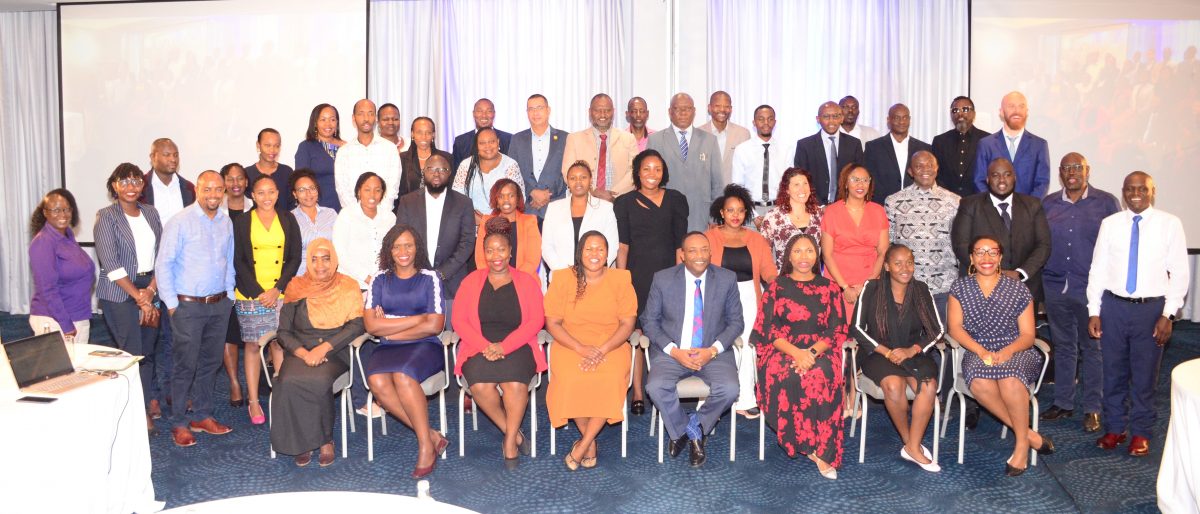
Impact of Capacity Building Trainings
By identifying specific learning areas within digital agriculture that would be of greatest relevance to IFAD-financed programs, Development Gateway and TechChange designed a number of training courses that provided capacity building for those who work in agriculture, as well as to mid-to-senior level officials and technical staff working in ministries, agencies, and organizations.
A total of 19 in-person training sessions were held on a variety of different topics, reaching 940 participants. Following up with these participants more than six months after they had completed their training, 92% stated that much or all of the course content remained relevant to their work and that they continue to frequently support colleagues using the concepts learned.
In addition to in-person training sessions, the DAS ICT4Ag Digital Classroom Series was created, containing four IFAD-sponsored self-paced training courses and ensuring the continued impact of the initiative. Two examples of IFAD-sponsored training courses on digital agriculture are highlighted below.
Basics of Digital Agriculture Ecosystems and Interoperability
In this course, participants learned about the causes and consequences of fragmented data, as well as the tools and techniques needed to achieve digital transformation for rural agriculture. Through exploring models of enabling environments for digital agriculture, participants learned how to assess the maturity of their own agriculture ecosystem. This course further outlines use cases and best practices for interoperable data use in digital agriculture, linking data from different sources in a standardized, context-aware way.
Access the free 2-hour self-paced Basics of Digital Agriculture Ecosystems and Interoperability course.
Basics of Digital Rural Finance for Agriculture
Introducing participants to digital finance in agriculture, this course explores how digital services and tools can be applied to an agricultural project or intervention with a financial component. Completing the course enabled participants to draw insights from IFAD’s project portfolio on the relevance of digital technologies to advance financial inclusion in rural areas, as well as to utilize IFAD’s financial strategy to deliver these tools and services to smallholder farmers.
It further equipped participants with knowledge of how to accurately assess the financial needs of smallholder farmers and how best to leverage digital technologies to address them. Through the use of real examples and case studies, the course made understanding the principles underlying the design and implementation of digital financial initiatives as simple and applicable as possible.
Access the free 2-hour self-paced Basics of Digital Rural Finance for Agriculture course.
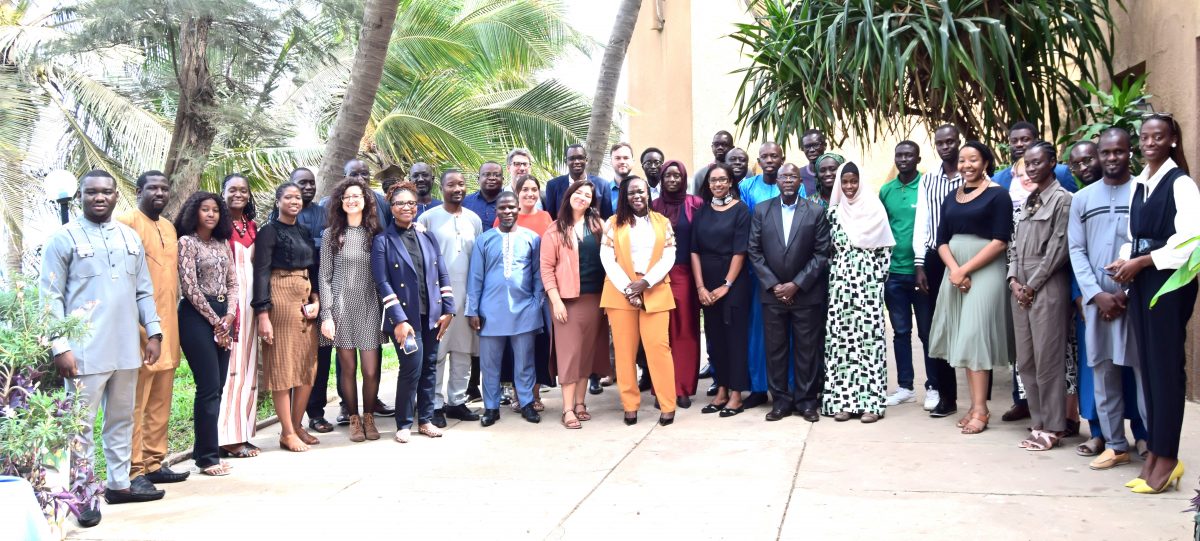
Lessons Learned & Recommendations
Through its 3-year lifespan, the DAS program made significant strides in supporting the digital transformation of agricultural systems across IFAD’s portfolio across East and Southern Africa, Central and West Africa, and the Near East and North Africa. Through tailored advisory services, targeted capacity building, and the development of knowledge products, the programme strengthened the ability of governments, project teams, and implementing partners to integrate digital tools in a way that is inclusive, sustainable, and aligned with local contexts However, as with every program, there were lessons to be learned on how to improve the impact of such programs in the future.
- Deploying ICT4D solutions in resource-constrained settings with low levels of digital literacy requires a strategic, context-aware approach that grounds innovation in practicality.
- Time constraints were a recurring challenge in countries such as Tunisia and Uzbekistan, where short mission durations restricted the depth of engagement. This hindered the ability to address more complex digital needs or provide sufficient capacity-building.
- In scenarios where capacity is limited and advisory engagements are short, it can further be difficult for the Project Management Unit (PMU) staff to define their needs and internalize the steps necessary to drive change and sustainably take recommendations forward to achieve long-term success.
- Programs could have benefited from a more unified approach to digitalizing Monitoring & Evaluation (M&E) processes, as well as involving end users in the design of any tool.
- Although the DAS intervention has proved valuable in a multitude of implementing countries, room for improvement exists in tailoring the digital solutions provided to fit the local context. Feedback suggested that consultants could benefit from a deeper understanding of IFAD’s context and projects to enhance their ability to provide practical and implementable technical solutions. This is particularly important in aligning with the realities on the ground, such as the technical capacities of the implementing partners, the developmental (rather than research-oriented) nature of IFAD projects, and the characteristics of the final beneficiaries – mainly smallholder producers with relatively low digital and technical skills.
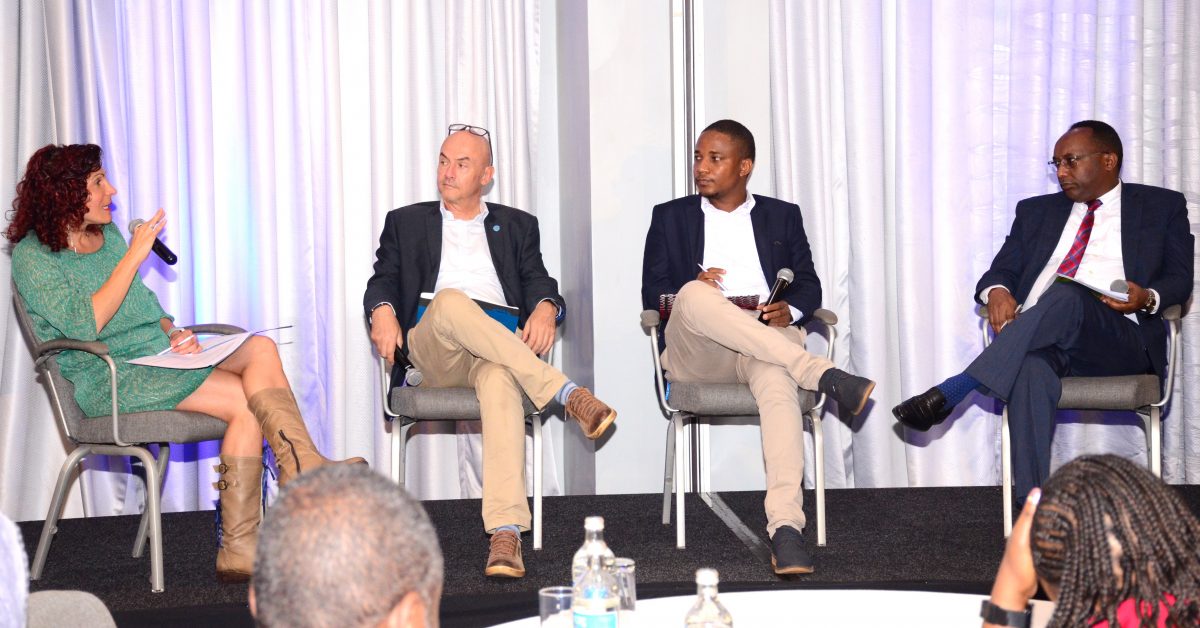
Recommendations for Future Programs
As the DAS program closes, it opens more doors for follow-up initiatives that build on the results it has achieved. In particular, the three facets of knowledge transfer, local ownership, and long-term sustainability will remain paramount for any initiative seeking to achieve digital transformation in the rural agriculture sector.
More than that, the following recommendations are suggested for future programs:
- Prioritize preliminary capacity-building activities: It is highly recommended that future digital interventions aiming to achieve similar results carry out preliminary capacity-building activities, such as a dedicated introductory phase for digital training. This will ensure that teams and PMUs are equipped with the necessary skills and knowledge to effectively implement digital solutions, efficiently adapt ICT4D tools to the local context, and maximize their ability to sustainably impact development outcomes.
- Implement M&E frameworks during the design phase: In order to accurately assess the effectiveness and impact of digital initiatives, it is paramount that clear M&E methodologies – as well as a structured approach to introducing these frameworks – be included in the program’s design. Doing so enables teams to easily track progress, effectively maintain alignment with the program’s objectives, and efficiently evaluate how well the digital components were implemented, as well as their ongoing impact on driving systemic change.
- Provide long-term ICT4D support: Finally, it is important to note that short-term advisory missions often lack the depth needed to fully implement programs that provide technical assistance. As such, it is recommended that long-term technical assistance be provided within IFAD’s projects to foster continuity, mentorship, and problem-solving beyond initial design, ensuring impact continues to evolve well after the program’s close.